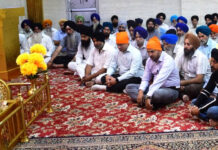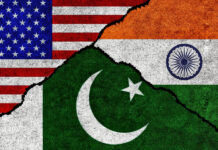The Priya Ramani case ruling should encourage more women to call out the wrongdoers
Most judgments are just that, another verdict, but a few of these are considered landmark. A Delhi court’s ruling acquitting journalist Priya Ramani in a defamation case filed by former Union Minister MJ Akbar falls in the latter category. With the verdict becoming the talk of the town, Ramani’s exoneration is nothing less than a conviction for Akbar. True, oftentimes a defamation suit proves out to be more damaging to the plaintiff’s own image. However, what make the present case a “milestone” are the court’s observations that “the right to protect one’s reputation cannot be at the cost of a woman’s right to dignity” and “a woman has the right to put her grievance at any platform of her choice, even after decades”. We can only hope that this verdict achieves its true purpose of empowering women who are objectified and treated only as a means to satiate the male’s lust. Ironically, despite several Acts, the national and State commissions for women, women’s courts and helpline numbers, the fair gender is treated rather unfairly and is still a vulnerable lot. Forget about the commonplace incidents of eve-teasing, stalking and inappropriate touching that young girls and women have to endure on a daily basis, even heinous crimes like rape and physical assault no longer shake our collective conscience. Ironically, most of these incidents are never reported as not every woman can afford a battery of lawyers, nor shore up public sympathy and support to the extent Ramani did through the #MeToo movement.
Further, the impact of any such verdict shouldn’t be viewed from the narrow prism of it being case-specific but rather whether it would likely bring about any significant change in the overall scenario. If it fails to inspire tens of thousands of women to speak up against the sexual predators who they tolerate in their everyday life, it won’t serve the real purpose. The state of affairs is worse than grim and even women at the top echelons in their respective fields experience harassment in one form or the other. We hear and read a lot about female doctors, bureaucrats and politicians being subjected to gender bias and harassment by their male colleagues. Surprisingly, even the judiciary, which rightly champions the cause of women in most cases, hasn’t been left untouched by this stain. Recently, the Supreme Court pulled up a judge for allegedly sending inappropriate messages to a junior female officer and flirting with her. In its 91-page Ramani case verdict, the court noted that it is shameful that violence against women is being perpetrated in a country where epics like the Mahabharata and the Ramayana were written around the theme of respect for women. True, we seem to have buried our ethos and morality deep; else the country where people once felt proud to prefix their mother’s name unto theirs — like Radhye Karna, Kaunteya Arjun, Gangaputra Bhishma and Kausalya Nandan Ram — would not hurl abuses in the name of mothers and sisters.



























